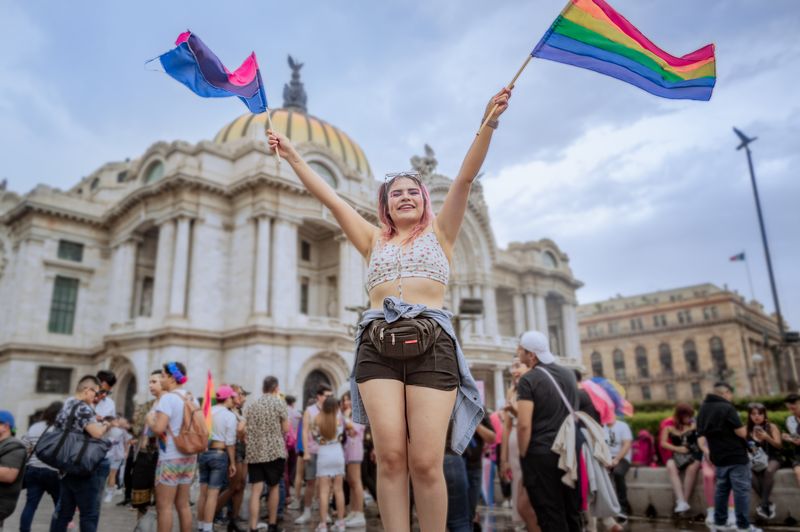Greta Thunberg Arrested at London Oil Summit Protest
Greta Thunberg, the renowned climate activist, was arrested on Tuesday after joining hundreds of protesters who gathered at a five-star hotel in London to denounce a meeting branded as “the Oscars of oil.” The meeting, called the Energy Intelligence Forum (EIF), brings together fossil fuel executives and government ministers, and has been criticized as a platform for backroom deals and compromises with the fossil fuel industry.
The Protest and Arrest
Footage from the protest showed Thunberg being bundled into the back of a police van after participating in protests that blocked the entrances of the InterContinental on Park Lane, the venue for the EIF. Dozens of protesters blocked the streets with banners and umbrellas painted with eyes, chanting slogans such as “oily money out” and “cancel the conference.” The hotel was cordoned off with fencing, and police escorted delegates through the crowd of activists.
Thunberg, addressing journalists before joining the protest, criticized the closed-door nature of the meeting and accused politicians of making deals and compromises with destructive industries. She called for direct action to stop the fossil fuel industry’s influence on politics and urged activists to physically disrupt the conference. Her arrest, along with several other protesters, underscores the growing frustration with the lack of meaningful action on climate change.
The Energy Intelligence Forum
The EIF, formerly known as the Oil & Money conference, has faced criticism for providing a platform for the fossil fuel industry to influence policy and maintain its destructive search for profits. The conference agenda included discussions on renewable power, net zero emissions, and the intersection of climate change, supply security, and shareholder returns. The event was set to culminate in an award ceremony, with prizes for the “energy executive of the year” and the “energy leaders for tomorrow.”
Organized by Fossil Free London, a climate campaign group, the protests aimed to highlight the cozy relationship between the fossil fuel industry and politicians. They argued that such events allow the oil industry to lobby politicians and corrupt the political process. The timing of the protest is significant, as it comes ahead of the upcoming COP28 conference in November, where global leaders will gather to discuss climate action.
The Philosophy of Climate Activism
Thunberg’s arrest and the larger movement she represents raise important philosophical questions about climate activism, civil disobedience, and the role of individuals in effecting change. Climate activism, particularly in the form of youth-led movements, has gained momentum in recent years as young people recognize the urgent need to address the climate crisis.
One key aspect of Thunberg’s activism is her use of the moral argument. She appeals to a sense of justice, highlighting the disparity between those who contribute the least to climate change but suffer the most from its devastating effects. This approach challenges the underlying ethical dimensions of the climate crisis and questions the responsibility of individuals and institutions to take action.
Furthermore, Thunberg’s call for direct action and disruption raises questions about the boundaries of civil disobedience and the moral obligation to protest against perceived injustices. While some may argue that protests should be peaceful and within the confines of the law, others argue that civil disobedience is a necessary tactic to bring attention to urgent issues that institutions and politicians fail to adequately address.
Editorial: The Urgency of Climate Action
Greta Thunberg’s arrest at the London oil summit protest serves as a reminder of the urgent need for bold climate action. The growing youth-led movement demanding action on climate change is a response to the lack of political will and the persistent influence of the fossil fuel industry.
The oil summit, and similar conferences, symbolize the close relationship between the fossil fuel industry and politicians, resulting in policies that prioritize profit over the well-being of the planet and its inhabitants. The consequences of climate change are already being felt worldwide, disproportionately affecting the most vulnerable communities. It is clear that the current approach is unsustainable and must be challenged.
Thunberg and the broader climate justice movement call for a radical rethinking of our energy systems, a transition to renewable energy sources, and a shift away from the destructive practices of the fossil fuel industry. This requires not only individual action, but also systemic change at the highest levels of government and corporate power.
World leaders must recognize that the climate crisis is an existential threat that demands immediate and decisive action. They must prioritize the well-being of future generations over short-term economic interests. The voices of activists like Thunberg serve as a powerful reminder that the current path is unsustainable and that we must do better.
Advice: Taking Action on Climate Change
As individuals, there are several steps we can take to contribute to the fight against climate change:
1. Educate Yourself
Stay informed about the latest scientific research and developments in climate change. Understand the causes and consequences of the crisis to effectively advocate for change.
2. Reduce Your Carbon Footprint
Make conscious choices to reduce your personal carbon footprint. This can include reducing energy consumption, embracing clean energy alternatives, adopting sustainable transportation options, and eating a plant-based diet.
3. Support Climate-Friendly Policies
Engage with local and national governments to advocate for policies that prioritize renewable energy, sustainable agriculture, and environmental protection. Vote for political leaders who prioritize climate action.
4. Join or Support Climate Activist Groups
Get involved with local climate activist organizations or donate to support their initiatives. Participate in peaceful protests or rallies to amplify the collective message for change.
5. Influence Change Through Your Network
Spread awareness and engage in conversations about climate change within your personal and professional networks. Encourage others to take action and advocate for a sustainable future.
6. Embrace Sustainable Practices
Incorporate sustainable practices into your everyday life, such as recycling, conserving water, and supporting businesses and brands that prioritize environmental responsibility.
Remember that collective action is crucial in tackling the climate crisis. By joining forces and demanding change, we can create a sustainable and just future for all.

<< photo by Eduardo López >>
The image is for illustrative purposes only and does not depict the actual situation.
You might want to read !
- Greta Thunberg’s Arrest at Fossil Free London Protest: The Power of Youth Activism
- Greta Thunberg: Potential imprisonment for protesting
- Swedish Authorities Take Legal Action Against Greta Thunberg for Oil Port Blockade
- Jet Zero Initiative Soars to New Heights with Stansted Airport’s Sustainable Course
- Pope Francis Criticizes America and the West’s ‘Irresponsible’ Lifestyle Choices on Climate Change
- “Examining the Pope’s Bold Critique of Fossil Fuel Companies and Urgent Call for Climate Action”




